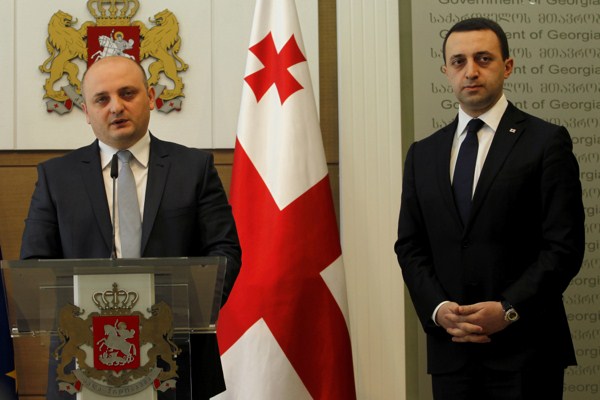The abrupt firing of Georgian Defense Minister Irakli Alasania last week has triggered the country’s most serious political crisis since the Georgian Dream-led coalition government came to power in October 2012. The departure of Alasania, popular at home and widely respected abroad, has raised questions about the durability of Georgia’s pro-Western foreign policy. But although Alasania spearheaded badly needed reforms in the Defense Ministry and was regarded as a guarantor of pro-Western policies within the coalition, his departure is unlikely to disrupt Georgia’s foreign policy—for now.
The immediate origins of the crisis were the arrests of senior Defense Ministry officials in early November on corruption charges. Alasania, who was on a working trip to Europe at the time, strongly backed his subordinates and criticized the arrests as an “attack on Georgia’s Euro-Atlantic choice,” implying that they were motivated and orchestrated by anti-Western forces within the coalition. In response, Prime Minister Irakli Garibashvili sacked Alasania while reiterating the government’s commitment to Euro-Atlantic integration.
Alasania’s firing only deepened the crisis. Euro-Atlantic Integration Minister Alexi Petriashvili and Foreign Minister Maia Panjikidze, both members of Alasania’s Free Democrats party, announced their own resignations, followed by a slate of other officials. On Nov. 5, the Free Democrats formally exited the coalition, throwing Georgian Dream’s parliamentary majority into doubt.

